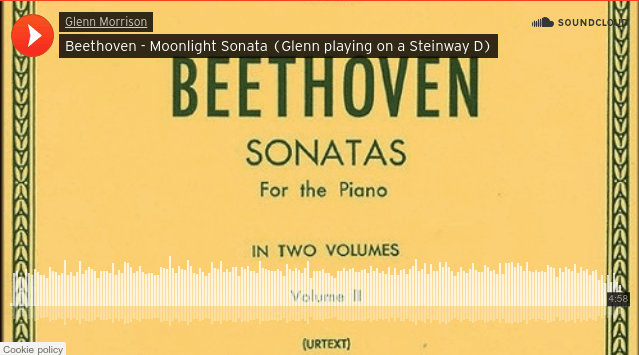Add a Soundcloud Player to a React Application
How do you add a Soundcloud player to a React website or application?
In this article, we're going to walk through the process of embedding a Soundcloud player into a React application/website. To do most of the heavy lifting, well use the ReactPlayer NPM package and React component to embed the player.
Before working through this article, we assume that you already have a React application created. If you need help creating one, we have an article that lays out 6 different ways to create a React application.
Lets get started!
Table Of Contents
Install ReactPlayer NPM Package
First, we need to install the ReactPlayer NPM package. You can install it using one of the below commands:
NPM:
npm install react-player --save
Yarn:
yarn add react-player
Now we're ready to embed the Soundcloud music player into your React website and/or application.
Use ReactPlayer To Embed The Soundcloud Player
Open the page in your React application you want to add the Soundcloud media player to and import the ReactPlayer NPM package into the page:
import ReactPlayer from "react-player"
This will make the <ReactPlayer /> component available for use in the page.
Here is how you'd put the component to use:
import React from "react"
import ReactPlayer from "react-player"
function App() {
return (
<div>
<ReactPlayer
url="https://soundcloud.com/glennmorrison/beethoven-moonlight-sonata"
/>
</div>
)
}
export default App
This code will embed a Soundcloud player into your page with the song located at the given url props value. We also supplied the component with a controls props value. This tells ReactPlayer to show the player controls native to Soundcloud.
After you save the file and reload the page, you should see the media player in the page.

The ReactPlayer component is now embedded in your webpage!
There are several other props data you can add to the component beyond the url and control values. Check out the project's documentation or play around with their demo for more information.